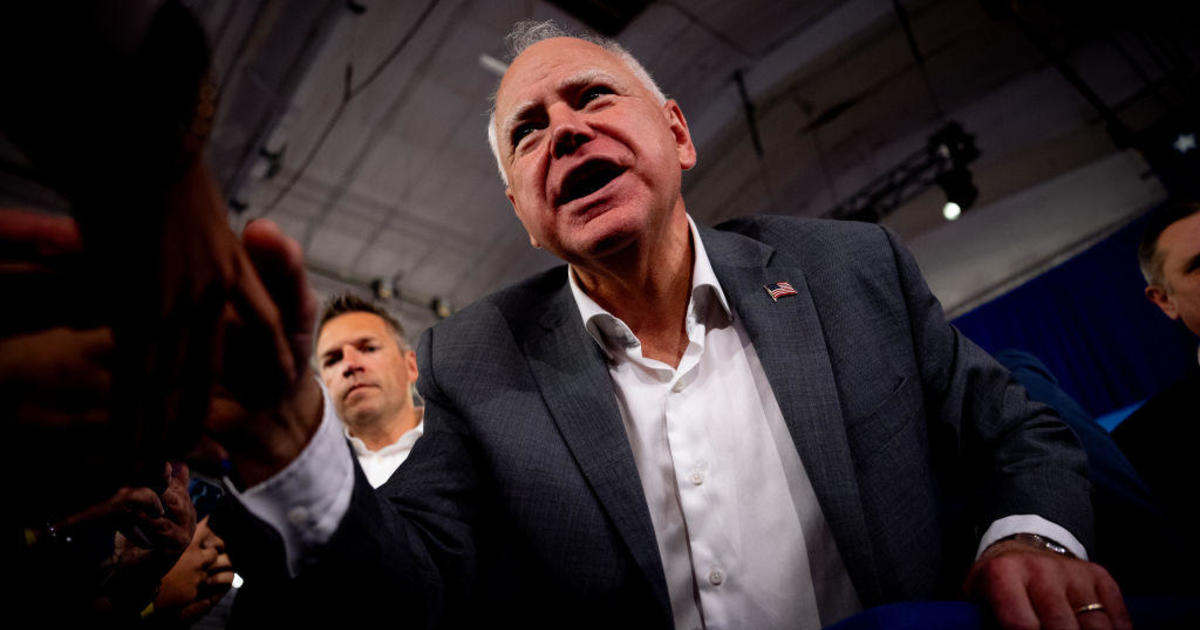In a California fundraiser hosted at Governor Gavin Newsom’s home on Tuesday in Sacramento, Minnesota Governor Tim Walz made a strong statement advocating for the elimination of the Electoral College system, emphasizing the need for a national popular vote. The event, attended by Democratic supporters, became the platform for Walz to express his views on the current electoral system in the United States.
“I think all of us know the electoral college needs to go,” Walz, who is also the Democratic vice presidential candidate, declared during his speech. “But that’s not the world we live in. So we need to win Beaver County, Pennsylvania. We need to be able to go into York, Pennsylvania, and win. We need to be in western Wisconsin and win. We need to be in Reno, Nevada and win.”
The remarks made by Governor Walz immediately caught the attention of the Trump campaign and prominent Republicans, who accused him of casting doubt on the legitimacy of a potential victory by former President Donald Trump in the upcoming election.
Trump campaign press secretary Karoline Leavitt raised concerns about Walz’s intentions, questioning if he was laying “the groundwork to claim President Trump’s victory is illegitimate?” in a social media post. However, in a statement provided to CBS News, a spokesperson for the Harris-Walz campaign clarified Walz’s stance, stating that he believes every vote matters in the Electoral College and is focused on earning support for the Harris-Walz ticket in battleground states.
Contrary to the interpretation by critics, the campaign official confirmed that getting rid of the Electoral College is not a position held by the campaign. The statement aimed to reaffirm Walz’s commitment to the electoral process and the importance of every vote in securing the necessary 270 electoral votes for victory.
The incident involving Governor Walz’s comments and subsequent clarification comes shortly after his appearance on “60 Minutes,” where he revealed that Vice President Kamala Harris had advised him to be more cautious with his words. Since gaining national prominence, Walz has faced scrutiny over discrepancies in his military record and statements regarding his service in the Army National Guard.
“I speak like everybody else speaks. I need to be clearer. I will tell you that,” Walz acknowledged during a press gaggle with CBS News, addressing the need for improved communication and transparency in his public statements.
The debate surrounding the Electoral College has been a contentious issue in American politics, particularly following the outcomes of the 2016 and 2000 presidential elections. Calls for reforming or abolishing the Electoral College have gained momentum within Democratic circles, with the argument that the system does not always reflect the will of the majority of voters.
Established by the Constitution, the Electoral College comprises 538 electoral votes distributed among states based on their congressional delegation. Most states operate on a winner-take-all system, where the candidate who wins the popular vote in the state receives all of its electoral votes.
The Pew Research Center conducted a recent survey indicating that 63% of Americans support deciding the election outcome based on the popular vote rather than the Electoral College system. The discrepancy between the popular vote and electoral vote results in recent elections has fueled calls for reform to ensure a more accurate representation of the electorate’s preferences.
Despite the ongoing debate and differing opinions on the Electoral College, any significant changes to the system would require a Constitutional amendment, a complex and challenging process that involves broad political consensus and support.
In conclusion, Governor Tim Walz’s remarks at the California fundraiser have reignited the discussion on the Electoral College and its role in the American electoral process. While his comments sparked controversy and criticism from opponents, they also highlighted the need for a comprehensive evaluation of the current system to address concerns about representation and fairness in presidential elections. The ongoing debate underscores the importance of engaging in constructive dialogue and exploring potential reforms to strengthen the democratic principles underlying the electoral process.









